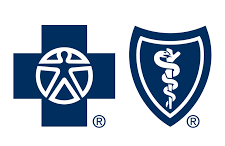UTI
- Skip The Waiting Room
- No Exposure To Other Sick Patients
- No Patient Travel Is Required

Your Comprehensive Guide to Urinary Tract Infections (UTIs)
Urinary Tract Infections (UTIs) are a common health issue, particularly among women. These infections can cause significant discomfort and, if left untreated, can lead to serious complications. This guide aims to provide you with essential information on the symptoms, treatment, and prevention of UTIs, empowering you to manage your health effectively.
Understanding UTIs
Definition and Common Causes
UTIs occur when bacteria enter the urinary tract, leading to infection. The urinary tract includes the kidneys, ureters, bladder, and urethra. While both men and women can develop UTIs, they are more prevalent in women due to anatomical differences. Common causes include:
- Bacterial Invasion: E. coli is the most common bacteria causing UTIs, often originating from the bowel.
- Sexual Activity: Can introduce bacteria into the urinary tract.
- Certain Birth Control Methods: Such as diaphragms and spermicides, can increase UTI risk.
- Menopause: Hormonal changes during menopause can affect the urinary tract, making infections more likely.
Why UTIs Are More Common in Women
Women are more susceptible to UTIs primarily because their urethra is shorter and closer to the rectum, making it easier for bacteria to enter the urinary tract.
Recognizing UTI Symptoms
Detailed List of Common Symptoms
Identifying UTI symptoms early is crucial for effective treatment. Common symptoms include:
- Frequent urge to urinate, even if little comes out.
- Pain or a burning sensation during urination.
- Cloudy, dark, or strong-smelling urine.
- Pelvic pain or pressure.
- Fatigue or fever, indicating a possible kidney infection.
Importance of Early Diagnosis
Recognizing these symptoms early can prevent the infection from spreading to the kidneys, which can lead to more severe health issues.
Diagnosis and Treatment
When to Seek Medical Attention
Seek medical attention if you experience:
- Persistent symptoms for more than a day or two.
- Severe pain or discomfort.
- Fever or chills, indicating a possible kidney infection.
- Recurring UTIs, which may require specialized treatment.
Evidence-Based Treatments
- Antibiotics: Typically prescribed to eliminate the infection quickly.
- Over-the-Counter Remedies: Pain relievers and urinary analgesics can alleviate discomfort.
- Hydration: Drinking plenty of water helps flush out bacteria.
The Role of Healthcare Professionals
Healthcare professionals play a crucial role in diagnosing and managing UTIs. They can provide tailored treatment plans and advice on preventing future infections.
Preventing UTIs
Strategies for Prevention
- Stay Hydrated: Drink plenty of water to help flush bacteria from your system.
- Practice Good Hygiene: Wipe from front to back to prevent bacteria from spreading.
- Urinate Frequently: Don’t hold in urine, and always urinate after sexual activity.
- Choose Appropriate Birth Control: Avoid diaphragms and spermicides if you are prone to UTIs.
- Wear Breathable Clothing: Opt for cotton underwear and avoid tight-fitting pants.
Special Considerations for Women
Hormonal changes during menstruation, pregnancy, and menopause can increase UTI risk. Maintaining proper bathroom habits, such as wiping front to back and not holding in urine, is particularly important.
Risks and Complications
Potential Complications of Untreated UTIs
If left untreated, UTIs can lead to severe complications, including:
- Kidney infections (pyelonephritis) which can cause permanent damage.
- Recurrent UTIs, leading to chronic kidney disease.
- Sepsis, a life-threatening response to infection.
Final Information
Summary and Final Advice
UTIs are common but manageable with prompt and proper treatment. Recognizing symptoms early, seeking medical attention when necessary, and practicing good preventive measures can help keep you healthy.
Encouragement to Seek Professional Help
If you experience UTI symptoms, don’t hesitate to consult a healthcare professional. Early intervention is key to preventing complications and maintaining your overall well-being.
By following this guide, you can take proactive steps to manage and prevent UTIs, ensuring a healthier, more comfortable life.










